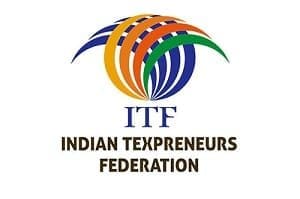Textile and Apparel constitute not only a complex value chain but have two other serious considerations. One is the participation of MSME sector and another is its capability of providing large scale employment.
Indian Govt. is taking a series of steps to bring structural changes in the champion sector like textiles to build competitiveness in manufacturing sectors so as to compete in the international markets.
MORE DEMAND FOR MMF PRODUCTS IN EXPORTS
The Post-Covid environment in world’s largest consuming markets like USA is favouring India as one of the preferred alternate destinations in Textile & Apparel sourcing.
And many countries like Vietnam also are looking to source more fabrics from India. The biggest volume of Business is emerging from MMF & Blended Fabrics and Apparels and Indian companies need to focus on these products to grow our exports.
RESULT OF STRUCTURAL REFORM
Presently, out of two of the major raw materials in MMF space – Polyester fibre is available in India at international prices due to structural changes brought out in previous budget with the removal of anti-dumping duty on PTA; and the whole value chain is now improving on the Exports’ front.
High Cost of Raw Material
At the same time, due to anti-dumping duty protection at fibre stage, viscose fibre prices in India are much higher than international prices with a difference of around Rs. 20 to Rs. 23 per kg. This undue protection at basic raw material stage by way of antidumping duty affects the entire value chain of textiles.
With only one manufacturer for this fibre in India, it’s like monopolising the trade and with higher cost of raw materials, entire value chain is struggling to compete in the global markets.
MASSIVE DUMPING OF YARN BY CHINA
Moreover, Indian spinners are also facing huge injury due to multi-fold jump in cheap Chinese yarn imports. The import of VSF spun yarn was 2022 tonnes during the year 2016-17 and the same got increased to 56,262 tonnes during the year 2019-20.
China has been dumping their yarn here and the landing cost of Chinese Yarn is cheaper by Rs. 20 per kg; than the Indian Spinners’ manufacturing cost
If anti-dumping duty on VSF is removed, Indian spinners will have access to fibre at international prices which will be competitive for the Indian Spinners to match yarn imports. The benefits would then flow to the entire value chain including MSME weaving sector.
Countries like Bangladesh, Vietnam, Cambodia have gained exponential share in the Global MMF based T&C (Textile & Clothing) exports – the reason being that these countries have access to fibre at international prices, which makes them to be competitive globally even without having their own source of raw material.
Appeal:
We hereby represent to Union Textile, Commerce, Finance Ministries to remove anti-dumping duty on Viscose fibre to create a level playing field for the entire value chain and this will help a big section of MSMEs in their growth and this request is perfectly aligned with Aatma Nirbhar Bharat Vision.

